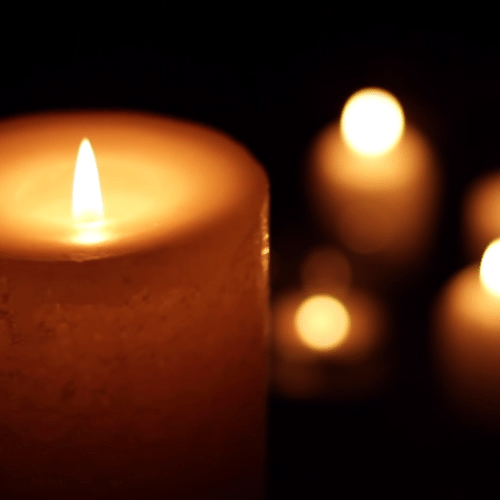I just want to emphasize that problems is a part of life and living in the physical reality. Whether you avoid problems, welcome problems, or just dutifully deal with problems really does make a difference in how strong you are to be in a changing world.
Marshall Vian Summers speaks on dealing with problems and gives insight into the problem with problems. Marshall explains how dealing with problems gives you the strength, the freedom and the abilities to deal with the larger problems of life. Recorded on the third night of the 2020 Steps to Knowledge Vigil.
So first of all, I just want to emphasize that problems is a part of life and living in the physical reality. Whether you avoid problems, welcome problems, or just dutifully deal with problems really does make a difference in how strong you are to be in a changing world. And so we become more self-reliant and we become more able to trust our own inclinations with that kind of skill-building that comes from solving problems. If we avoid problems, then those things just do not appear and do not rise.
However, one of our big problems is we really don’t know what the problem is that may be bothering us at any given time. Because we live in a physical and a mental environment, we’re influenced by forces we don’t recognize, even forces that our senses don’t normally report to us.
For example, at this time in life, there’s many people in the world suffering, facing loss, facing great anxiety, facing very serious illness, facing major disruption to their economies and way of life. And so you have a major disruption in the mental environment. And I know that some of you have reported in that having problems meditating in these times. Or you’re experiencing a kind of gravity, like there’s a cloud over you—gravity—and maybe where the elements of that gravity is grief, loss. You’re definitely feeling a weight of these times, a weight of uncertainty and a weight of suffering. And even though we think we live in our own world, insulated from life, we’re really not that insulated. So this produces problems at different levels for us.
But I want to talk about different levels of problems tonight because the level of confusion that happens around problems is one of the problems. It’s one of the problems while there’s little problems, big reactions; big problems, little reactions.
Now if we were a wise race, we would drop everything and deal with this pandemic, recognizing it’s a threat to our world order—everyone—if we were a wise race. Everyone would get a big problem and get with it, like, not just here and there, but seriously. It would be a planetary emergency.
But we see that that is definitely not the case and that many people think the pandemic is a little problem, or that what may follow will only be a little problem. They can’t see it. They can’t feel it. They can’t know it. And they’re afraid to look at it. They don’t even want to go near it. They don’t want to see how it’s manifesting in the world. And so they’re unable to respond to it.
So they’re keeping it little in their own awareness because either they don’t have a capacity to deal with it or it’s just too upsetting for them to think about it or to follow it or to understand its manifestations. So here we have the problem with problems manifesting in our life at this time.
So first of all, let’s make one distinction. There are little problems and there are big problems. Little problems are things that your intellect or the intellect of others can generally solve. They may be expensive. They may be unpleasant. They may require some time and energy. Maybe you have the skills to deal with it; maybe you don’t, but they’re really not very significant. But if you don’t deal with them, they become significant. If you don’t deal with problems arising in your health, your financial circumstances, your relationships, your work, profession, these little problems can become bigger problems. They can even become threatening problems.
So taking care of little problems is really important. And I recommend you have a very aggressive attitude regarding that. Instead of complaining that you have this problem to deal with or all these problems to deal with, say to yourself, “Dealing with these problems will make me strong. Dealing with these problems will actually save me time going forward. Dealing with these problems will give me strength and freedom in the future.” Because if you don’t face them, you will not have these things in the future.
The big problems are really in the domain for Knowledge within us. The big problems have to do with purpose, meaning and direction in life, have to do with your major avenues of activity: your relationships, your work, your health and your spiritual development. These produce bigger problems, bigger needs because they’re bigger needs for us. And they often don’t come with simple answers. There are no simple answers.
Now the Step we just read says that there’s a simple answer to all problems that face me. The problem here is that we’re not simple. And even the simple answer may be one step to take amongst many that will be required to really answer that problem or that need. Simple, yes—but we may be too complex, too conflicted to respond to a simple answer.
In the Buddhist tradition there is a saying that the Great Way is easy for those who have no preferences. I used to think about that a lot. I used to think about that.
So let’s call a little problem a little problem, put it on your to-do list and get it done as soon as you can because you need to save yourself for the bigger problems. You need to have time and energy and focus for that because those are the things that are going to make all the difference in the kind of life you’re going to live, it’s degree of fulfillment, satisfaction and meaning for you. Even your survival in the future may hinge upon it. The bigger problems, the bigger needs.



